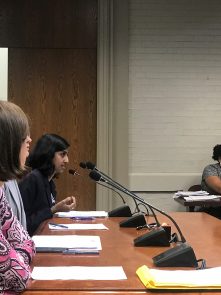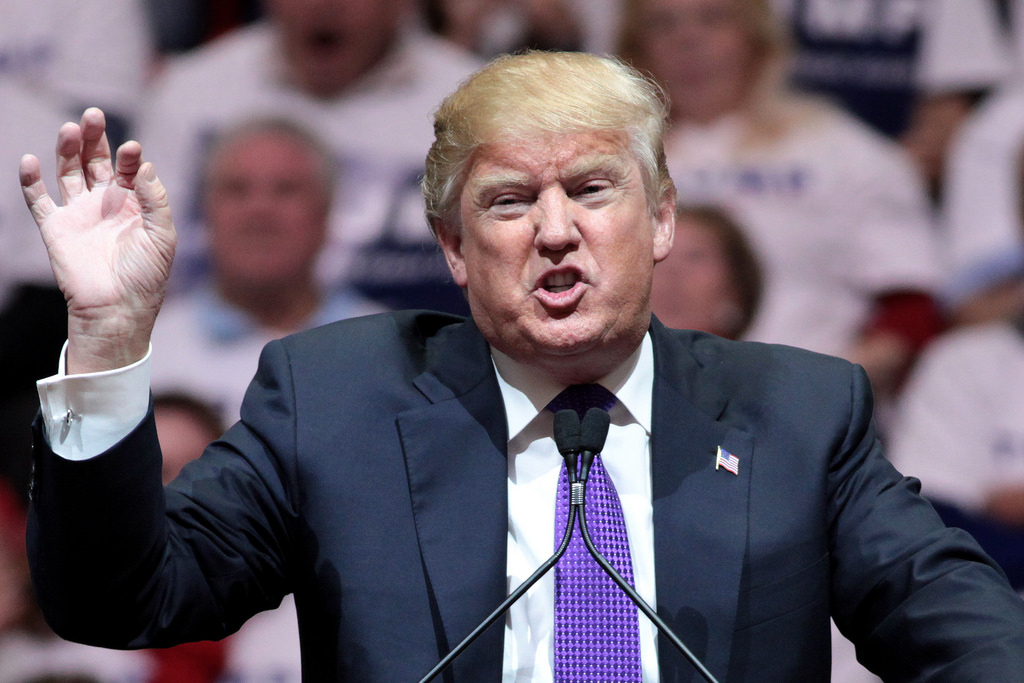Abortion rights, women of color, and LGBTQIA+ people are under attack. Pledge to join us in fighting for gender justice.
NWLC Testifies in Support of DC Bill Limiting the Use of NDAs Regarding Workplace Harassment

 Read Maya Raghu’s written testimony here.
Read Maya Raghu’s written testimony here.
Last week, the National Women’s Law Center testified before the DC Council Committee on the Judiciary and Public Safety regarding B22-0907, the Sexual Misconduct Sunshine Amendment Act of 2018. Introduced by Councilmember Charles Allen and 12 co-sponsors, B22-0907 aims to limit the use of harmful nondisclosure agreements (NDAs) in the workplace. NDAs are legally enforceable contracts, often found in employment contracts or settlement agreements, that prohibit a party or parties from disclosing certain information. As the sexual harassment and assault cases against Harvey Weinstein and D.C.’s own restauranteur, Mike Isabella, so aptly demonstrated, NDAs have increasingly been used to prevent individuals from speaking up about sexual harassment and discrimination, thereby helping hide harassment and allowing predators to evade accountability.
B22-0907 seeks to stop the abusive use of NDAs by:
- Banning the inclusion of NDAs that prevent employees from speaking about harassment and discrimination in employment contracts at the time of hire.
- Limiting the use of NDAs in the context of settlement agreements except when “entered into at the claimant’s request.”
- Empowering employees to speak up about all forms of discrimination under the DC Human Rights Act of 1977, not just sexual harassment (despite the bill’s name).
- Extending these protections to any individual employed by or seeking employment from an employer, including independent contractors, volunteers, and interns, individuals who are often without any legal recourse for sexual harassment and particularly vulnerable to harassment.
- Allowing a victim to bring an action in court for compensatory damages, injunctive relief, and reasonable court costs and attorney’s fees, within 3 years after the violation.
B22-0907 is an important step forward in the fight to prevent and end harassment in the workplace. By prohibiting employers from forcing employees to agree to a NDA at the time of hire, this bill would lift the veil of secrecy that enables predatory behavior, would protect employees’ rights to report and discuss harassment, and increase employer accountability. In passing this legislation, DC would join a handful of states, including California, Maryland, Tennessee, Vermont and Washington, that have passed legislation over the last year prohibiting employers from putting NDAs relating to harassment and discrimination in employment contracts.
Further, B22-0907 is an important step forward because it does not ban all NDAs in the settlement context but seeks to shift the power to the employee to decide whether to request confidentiality. Victims of harassment sometimes want to ensure confidentiality to protect themselves from retaliation or damage to their professional reputations and job prospects. Moreover, a policy banning all NDAs in the settlement context could make employers less likely to settle claims or offer significantly less money, forcing victims into costly litigation in court, which is not a realistic option for many workers.
At the hearing we also raised our recommendations for strengthening and clarifying the bill. One of our main concerns, shared by other advocates at the hearing, was that allowing NDAs in settlement agreements “at the claimant’s request” could become a significant loophole that undercuts the bill’s protections. That’s because this provision does not provide meaningful protection against an employer coercing an employee into “requesting” an NDA that they otherwise might not want to agree to. The risk of coercion is a particular concern for low-wage workers who often do not have or cannot afford legal counsel to represent them in settlement negotiations.
We presented examples of approaches from other states grappling with this issue. For example, New York passed a bill similar to B22-0907 that gives complainants 21 days to review the agreement, and another seven days to revoke their consent even after executing the agreement. New Jersey is considering a bill that would deem an NDA in a settlement agreement involving harassment or discrimination to be against public policy and unenforceable against an employee. However, if the employee divulges sufficient information to make the employer identifiable, the NDA is not enforceable against the employer either.
Further, we recommended that the Council extend the protections in this bill to NDAs that prevent workers from speaking up about other employment and labor violations, not just harassment and discrimination. Violations of wage and hour laws for instance, deepen power imbalances and make workers more vulnerable to harassment.
The one-year anniversary of #MeToo going viral provides an important opportunity to respond to the systemic problems highlighted over the last year relating to workplace harassment, including the increasing use of contractual provisions like NDAs that silence victims and help hide harassment. We are pleased to see the D.C. Council grappling with this important issue.




